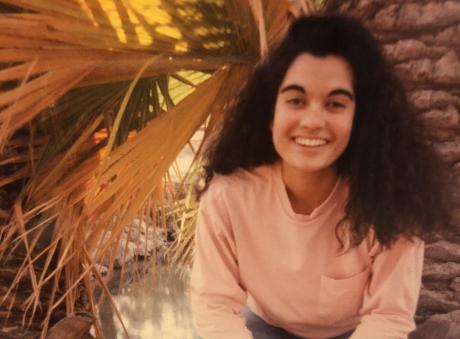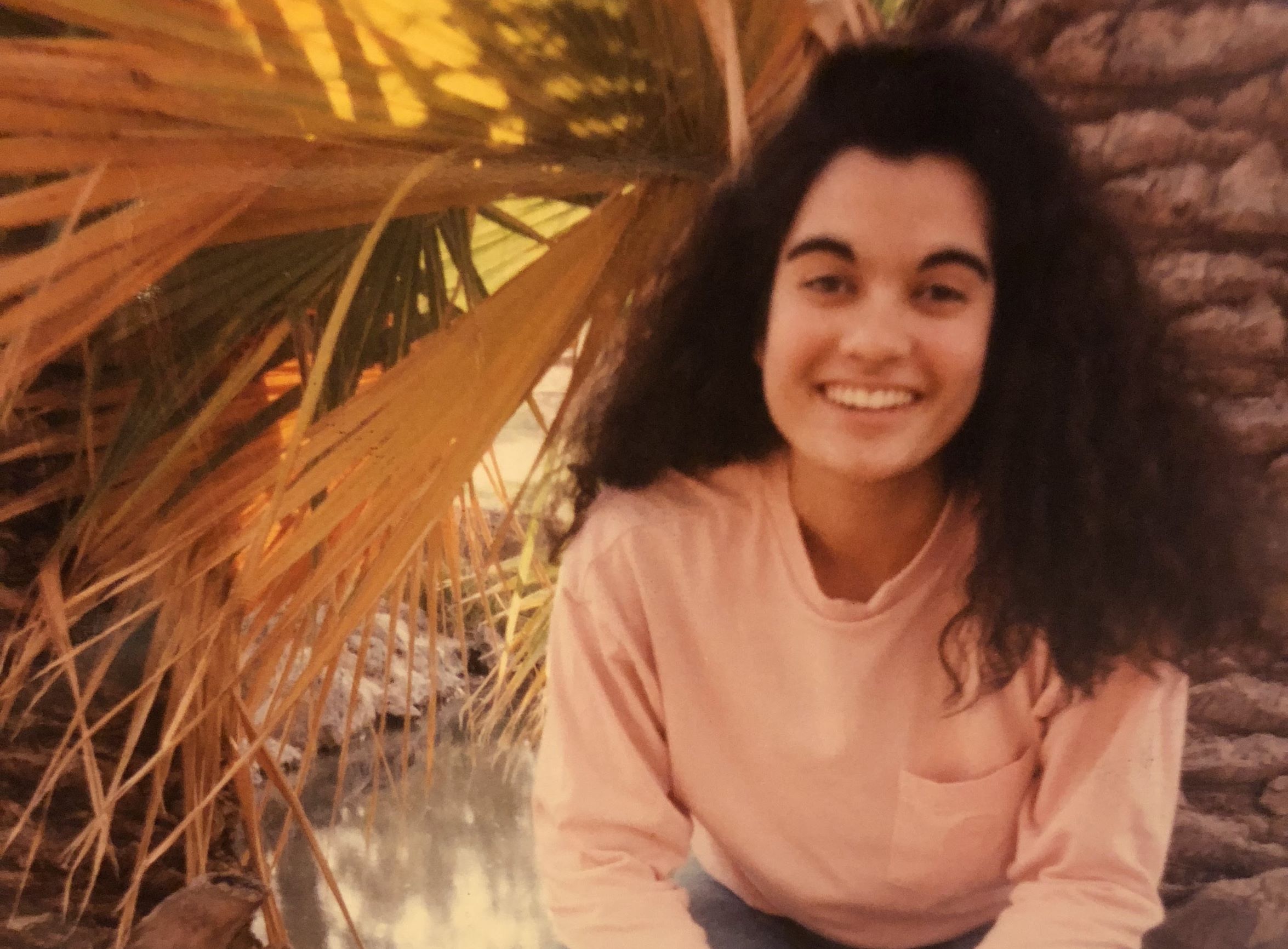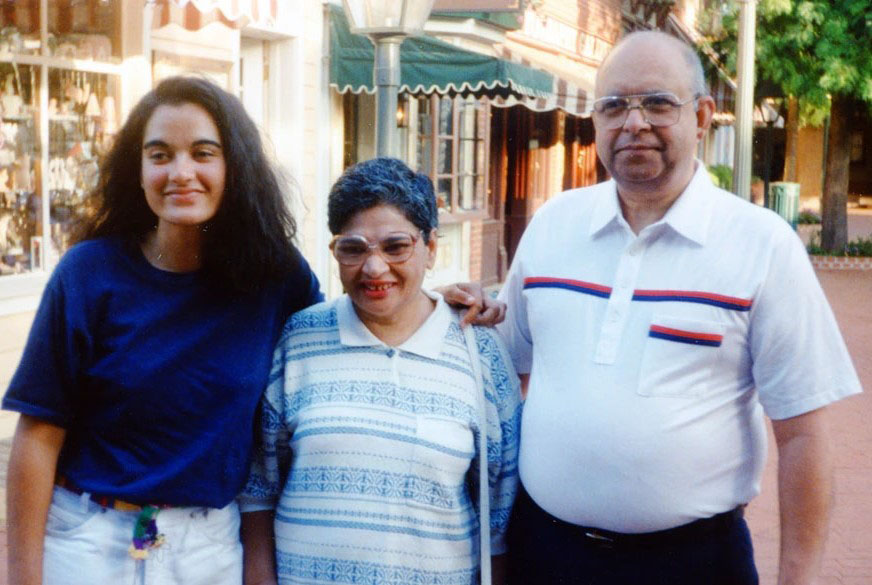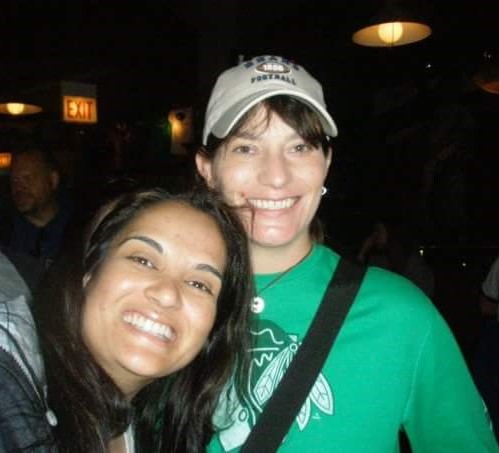Loving daughter leaves respite care legacy


All her life, Karen Haq knew exactly what being a caregiver for an ailing loved one entailed.
She had witnessed it in her own family, later living it herself for 16 years. Her final act before her March 28, 2018, death from a rapidly spreading cancer was to create a foundation that would support respite care for caregivers as one of its primary missions.
Haq had no connection to Florida State University or to Alzheimer’s disease, but the College of Medicine’s African American Alzheimer’s Caregiver Training & Support Project (ACTS2) has benefited from her legacy, as have the families it works with.
“One of the most difficult problems family caregivers of older adults with dementia face is obtaining effective respite care services,” said College of Medicine Professor Rob Glueckauf, Ph.D., ACTS2 founder and director. “They typically have not been given information about such services from their health care providers and are left wondering whether they are eligible to obtain them from state-sponsored organizations or, alternatively, whether they can afford private payment.”
With grant support from the Haq Family Foundation, ACTS2 has been able to assist family caregivers in identifying respite care opportunities in their communities, to help them in composing questions when they interview potential providers, and to review the pros and cons of each candidate or service they have on their short list. The foundation has made two separate gifts over the past couple of years.
“The Haq Foundation has allowed ACTS2 to take a more proactive role in providing support and spend the needed time to address the concerns of family caregivers,” said Tomeka Norton-Brown, ACTS2 project coordinator. “Because of the foundation’s generosity, we can continue to support family caregivers of older adults with dementia how, where, and when they need it.”
Research has shown that African Americans are twice as likely to be diagnosed with Alzheimer’s or other forms of dementia as Caucasians, Glueckauf said. They are also more likely to ask their faith leaders for guidance than their doctors.
“If you want to help people, you have to meet them where they are, not where you wish they were,” Glueckauf said. “We realized we needed to provide support to caregivers through a faith-integrated approach, to help them tap further into networks they already had.”
ACTS2 offers free skills-building and support services, with components such as relaxation training through prayer and meditation, creative problem-solving, and building in pleasant daily activities as a guard against emotional distress, such as brief chats with phone buddies and listening to inspirational music. It also reinforces self-care for caregivers. (Read more about the ACTS2 project.)
Elizabeth Fields, president of the Haq Family Foundation’s Board of Trustees, said it was “happenstance” that she learned about ACTS2 through a conversation with Glueckauf, not about the foundation, but related to her work as a non-profit fundraiser. Later, “it occurred to me, ‘Wait a minute, I know an organization that I think could really use this money.’”
A strong sense of family

Karen Haq had watched her father, Subhanul “Sam” Haq, a gifted engineer who held several patents for biomedical devices, serve as primary caregiver for her mother, Najma Haq, who had multiple chronic health challenges. The couple had emigrated from Pakistan when Sam was awarded a scholarship to the Indiana Institute of Technology, where he earned a bachelor’s degree.
Karen, their only child, graduated from the University of Arizona with a biochemistry degree in 1993, then moved to Chicago to earn a graduate degree in computer science at Loyola University. After her father was diagnosed with mouth cancer in the early 2000s, she moved back to Phoenix.
“For about six years, she took care of both her parents, because her father was in no shape to take care of her mother,” Fields said. “His cancer spread, but he survived as long as he did in part because of one of the biomedical devices he had patented.”
After her father died, Fields said, “Karen felt obligated to continue the care he had given her mom. She felt like putting her mom in some kind of care facility was not the kind of care her father would have wished for her.”
Karen took care of her mother as primary caregiver for the next 10 years. She had met Fields as both young women were just starting college in Tucson, moving into the same dorm as freshmen in 1989.
“When I met her, quite frankly, her door was open and I walked in there and started chatting her up, and she was cool with it,” Fields said. “She wasn’t looking at me like, ‘Why are you doing this?’ It was an instant, ‘Oh good, I have a friend.’ “

The two began an endearing, and enduring, friendship. At one point, they decided to have a reunion in Chicago with another friend. Karen brought her mother along and arranged for a caregiver to stay at the hotel with her while the three college friends took in a Chicago Cubs baseball game.
“I’m a White Sox fan, but they’d never been to Wrigley Field, and I was happy to be with them,” Fields said. “Karen was very vivacious and a very positive light to be around. She wasn’t a party girl, but she loved to laugh, and she loved to dance.”
After Karen’s mother died, Karen was making plans to travel. Then she got sick.
“It was tragic. She called me and told me she had Stage 4 colon cancer that had spread to her ovaries, and I was like ‘What! What is going on?’” Fields recalled. “It spread so quickly throughout her body she didn’t even have time to start treatment. Part of this, too, is that during the time she was taking care of her mother, she didn’t really take care of herself.”
Less than two weeks after that fateful phone call, Karen Haq was gone. But she had hired an attorney and created the foundation that bears her family’s name and is dedicated to three causes. One supports scholarships for first-year graduate students in engineering, with preference given to international students, in honor of her father. Among the scholarships awarded thus far are one at Karen’s alma mater, the University of Arizona, and one at Indiana Tech, her father’s alma mater. Another supports animal welfare causes in honor of Karen’s mother, who loved animals. For her own legacy, Karen wanted to support respite care for family caregivers.
“It was so important to her to help caregivers,” Fields said, “and it was important to the board, because of the family’s heritage, to help people of color.
“Supporting ACTS2 is more about respite care education than providing respite care, but we felt like it is still the kind of contribution that Karen would like to see.”
By “we,” Fields means she and the other five members of the Haq Family Foundation’s board. Like Fields, three of them met Karen in college; one met her as a schoolgirl and the other is a longtime family friend. All are volunteers and receive no compensation.
Both Glueckauf and Norton-Brown expressed profound gratitude for the Haq Family Foundation’s support and “unswerving commitment to promoting the health and welfare of family caregivers of older adults with dementia,” Glueckauf added.
“All of us on the board are honored that we have this opportunity to do right by the family, and they were a very lovely family,” Fields said. “Obviously, we miss our friend Karen and her parents, but we’re here to hopefully do some good.
“We are happy to support ACTS2.”
Contact Audrey Post at audrey.post@med.fsu.edu

